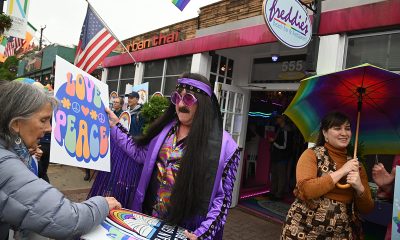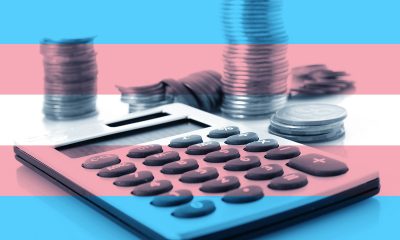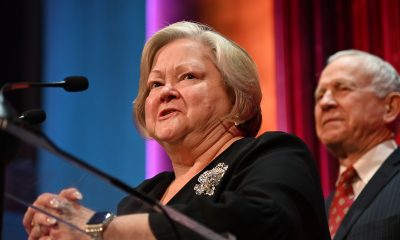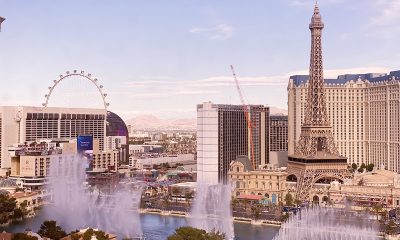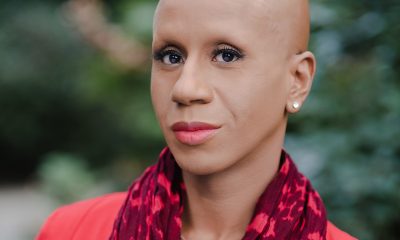News
Nelson Mandela dies at 95
LGBT activists mourn former South African president
“Our nation has lost its greatest son,” said South African President Jacob Zuma as he announced on South African television that Mandela had passed away at his Johannesburg home. “Nelson Mandela brought us together. And it is together that we will bid him farewell.”
Born in Cape Province on July 18, 1918, Mandela spent 27 years in jail for opposing South Africa’s apartheid-era government until his release in 1990. Mandela was the country’s president from 1994-1999.
South Africa in 1994 became the first country in the world to add a ban on discrimination based on sexual orientation into its constitution.
Mandela in 1994 nominated Edwin Cameron, a gay man with HIV, alongside four others to sit on South Africa’s highest court.
“I became the first openly gay judge in South Africa’s history and, at that time, one of the very few openly gay judges anywhere in the world,” wrote Cameron in an op-ed for the South African website Mambaonline in July that he provided to the Washington Blade. “Mr. Mandela was not only happy to appoint me — he did so with emphatic personal warmth, which he personally expressed to me and to others.”
South African LGBT rights advocate Phumzile Mtetwa also recalled Mandela’s LGBT legacy in an op-ed the South African newspaper Mail and Guardian published in July while the former South African president was in critical condition in a Pretoria hospital for what his doctors described as a recurring lung infection.
Mtetwa noted Mandela was president of the African National Congress in 1993 when it added the extension of rights to LGBT South Africans to its platform. The ANC in 1997 adopted a resolution opposing discrimination based on sexual orientation.
Mtetwa wrote Mandela “became an important icon of the movement” in contrast to Zimbabwean President Robert Mugabe, Ugandan President Yoweri Museveni and other anti-LGBT African heads of state.
“As a queer activist I will remember uTatu Dalibhunga for the dreams of freedom he symbolized,” Mtetwa said.
Gavin Hayward, editor of Exit, a South African LGBT newspaper, told the Blade from Johannesburg on Friday that LGBT South Africans continue to acknowledge Mandela’s pro-gay legacy. He noted his own interracial relationship would have been banned under Apartheid.
“He was such a great man, with such compassion and selflessness to devote his life to a cause really for the benefit of others,” Hayward told the Blade. “That’s huge and of course I admire him immensely. God knows where the country would have been if we hadn’t had a great man like that around.”
Obama described Mandela as one of the “most influential, courageous and profoundly good human beings that any of us will share time with on this Earth.”
“Through his fierce dignity and unbending will to sacrifice his own freedom for the freedom of others, Madiba transformed South Africa — and moved all of us,” the president said. “His journey from a prisoner to a President embodied the promise that human beings — and countries — can change for the better.”
House Speaker Nancy Pelosi (D-Calif.) and D.C. Mayor Vincent Gray are among those who also mourned Mandela’s death.
“Nelson Mandela tore down oppression, united a rainbow nation and always walked arm-in-arm with his LGBT brothers and sisters — and with all people — toward freedom,” said Human Rights Campaign President Chad Griffin in a statement. “Though every man, woman and child who seeks justice around the world mourns this loss, his vision of an equal future lives on undimmed.”
Rev. Nancy Wilson, moderator of the Metropolitan Community Churches, described Mandela as “one of the greatest leaders in history.”
“Because of Nelson Mandela, South Africa became the first country in the world to include constitutional protection for same-gender loving persons,” she said. “As the head of a church with many gay, lesbian, bisexual, transgender and queer members in 40 countries, including South Africa, I honor the liberator, Mandela.”
The White House
Jane Rigby awarded Presidential Medal of Freedom
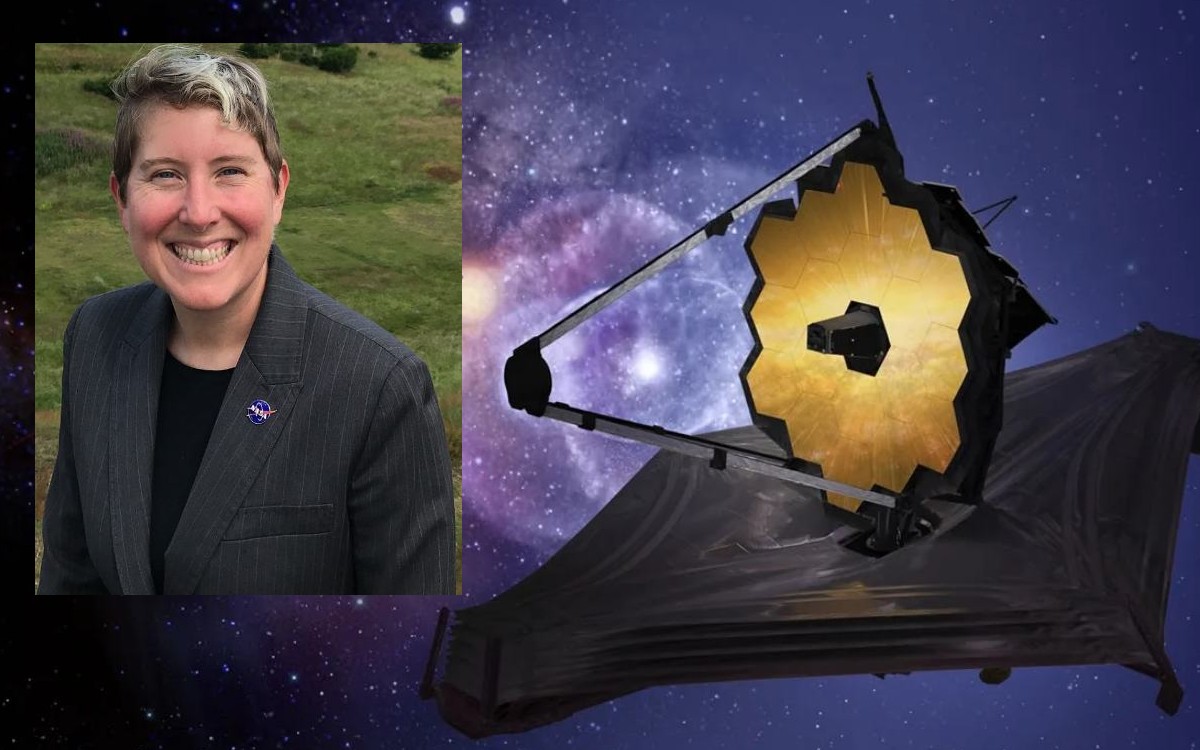
Sitting among a diverse and venerable group of Americans from every walk of life on the dais in the East Room of the White House on May 3 was lesbian and NASA astrophysicist Jane Rigby, awaiting her turn to be honored by President Joe Biden who would bestow the Presidential Medal of Freedom, the nation’s highest civilian honor, on her.
Rigby, an astronomer who grew up in Delaware, is the chief scientist of the world’s most powerful telescope who alongside her team operating NASA’s James Webb Space Telescope, studies every phase in the history of the universe, ranging from the first luminous glows after the Big Bang, to the formation of solar systems capable of supporting life on planets like Earth, to the evolution of the solar system.
A member of Penn State’s Class of 2000, Rigby graduated with a bachelor’s degrees in physics and astronomy. She also holds a master’s degree and a PhD in astronomy from at the University of Arizona. Her work as the senior project scientist for NASA’s Webb Telescope includes studies on how galaxies evolve over cosmic time and she has published more than 140 peer-reviewed scientific papers.
Rigby was named to Nature.com’s 2022 list of 10 individuals who shaped science and to the BBC’s list of 100 inspiring and influential women in the same year. Rigby had postdoctoral fellowships at Carnegie Observatories in Pasadena, Calif., before landing her job at Goddard Space Flight Center. In 2013 Rigby was awarded the Robert H. Goddard Award for Exceptional Achievement for Science.
A founding member of the American Astronomical Society’s Working Group on LGBTQ Equality in January 2012, now called the Committee for Sexual Orientation and Gender Minorities in Astronomy, Rigby serves as its Board Liaison until her term expires this June.
The lesbian astrophysicist in an interview for SGMA’s website spoke about her experiences including coming out:
“I’ve been out since 2000. My story’s simple — I fell in love with a fellow grad student in the department. It was a close-knit department, so hiding would have been ludicrous. Nor did I want to hide the best thing in my life! So, we were out as grad students. I certainly heard people say awful homophobic things at work there. They weren’t directed at me, and they weren’t said by people with power over me. If I recall, I was much less afraid of homophobic discrimination at work, than I was afraid of the two-body problem, and the lack of support we would receive as a same-sex couple in astronomy. That fear turned out to be justified. I’ve seen numerous different-sex couples get a wide range of support in solving the two-body problem, which was never offered to us,” she told the interviewer.
She reflected on American astronaut and physicist Sally Ride, her childhood role model who had an impact on her career:
“One of my biggest role models when I was young was Dr. Sally Ride. A few years ago, on her deathbed, Dr. Ride chose to write in her obituary that her life partner had been a woman. Dr. Ride was the most influential woman scientist when I was growing up — the person that made me say, “I want to do THAT when I grow up.” It was because of her that I realized that astrophysics was a profession, that physics was a subject girls could study, that NASA needed astrophysicists. So I’m so … amused, I suppose, that Sally Ride was this influence on my life’s path, at a time when I was completely unaware that it was even possible to *be gay* — and at the same time, she was gay, in love, and deeply closeted to keep her job.”
The interviewer noted that “for some women being gay is a cause for concern at the work place. Some say they were unsure about how to turn their sexual orientation into a positive aspect of their work persona.” Then asked Rigby what is your view on this?
“My experience is that absolutely I am a *better* astronomer because I’m queer. For a few reasons. First, I see things different than my colleagues. On mission work, as we weigh a decision, my first thought is always the community impact: ‘If we do things this way, who benefits, and who gets left out in the cold?’ Will this policy create inclusion, or marginalization? I think about science in terms of community-building. What team do we need to tackle a given science problem, with skills that are different from mine? Absolutely I think that way because I’m an outsider, because I’ve been marginalized. And because community-building is central to LGBTQ culture,” she said.
Editor’s note: You can read Rigby’s complete SGMA interview here: (Link)
Married to Dr. Andrea Leistra, Rigby, her wife and their young child reside in Maryland not far from her workplace at the NASA Goddard Space Flight Center in suburban Washington and when not studying the universe is often found on the neighboring Chesapeake Bay wind boarding, a favored pastime.
Also honored in the ceremony Friday were a former U.S. vice president, a civil rights worker and martyr, two former Cabinet secretaries — one a former U.S. secretary of state, a speech writer for the late Dr. Martin Luther King Jr., an Olympian and gold medalist, and one of the most powerful woman political leaders and the speaker emeritus of the U.S. House of Representatives, among others, and LGBTQ advocate Judy Shepard.
WATCH
Arts & Entertainment
Washington Blade’s Pride on the Pier and fireworks show returning June 8
The annual Pride on the Pier Fireworks Show presented by the Leonard-Litz Foundation will take place on Saturday, June 8 at 9 p.m.
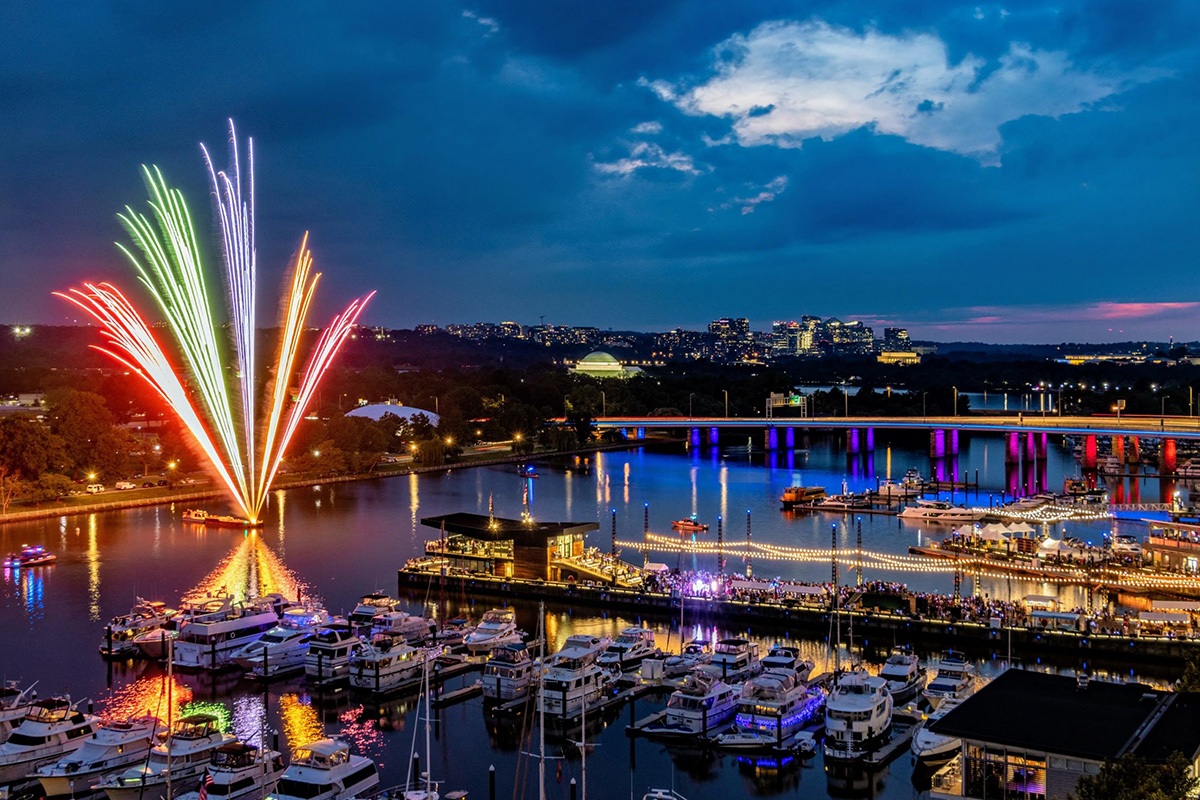
The Washington Blade, in partnership with LURe DC and The Wharf, is excited to announce the 5th annual Pride on the Pier and fireworks show during D.C. Pride weekend on Saturday, June 8, 2024, from 2-10 p.m.
The event will include the annual Pride on the Pier Fireworks Show presented by the Leonard-Litz Foundation at 9 p.m.
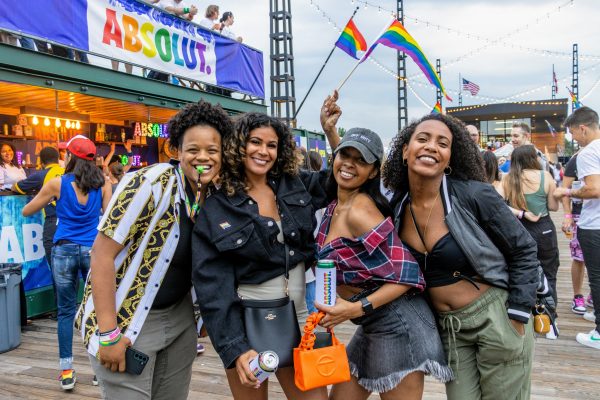
Pride on the Pier extends the city’s annual celebration of LGBTQ visibility to the bustling Southwest waterfront with an exciting array of activities and entertainment for all ages. The District Pier will offer DJs, dancing, drag, and other entertainment. Alcoholic beverages will be available for purchase for those 21 and older. Local DJ’s Heat, Eletrox and Honey will perform throughout the event.
3 p.m. – Capital Pride Parade on the Big Screen
3:30 p.m. – Drag Show hosted by Cake Pop!
9 p.m. – Fireworks Show Presented by Leonard-Litz Foundation
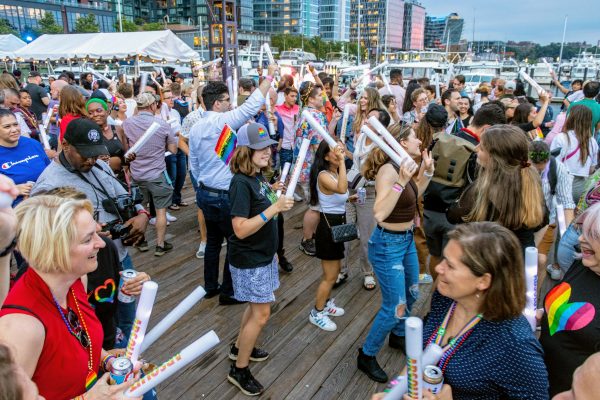
The event is free and open to the public. The Dockmasters Building will be home to a VIP experience. To learn more and to purchase tickets go to www.prideonthepier.com/vip. VIP tickets are limited.
Event sponsors include Absolut, Buying Time, Capital Pride, DC Brau, DC Fray, Burney Wealth Management, Infinate Legacy, Leonard-Litz Foundation, Mayor’s Office of LGBTQ Affairs, MISTR, NBC4, The Wharf. More information regarding activities will be released at www.PrideOnThePier.com
Maryland
Trone discusses transgender niece
Blade interviewed Md. congressman, Angela Alsobrooks last week
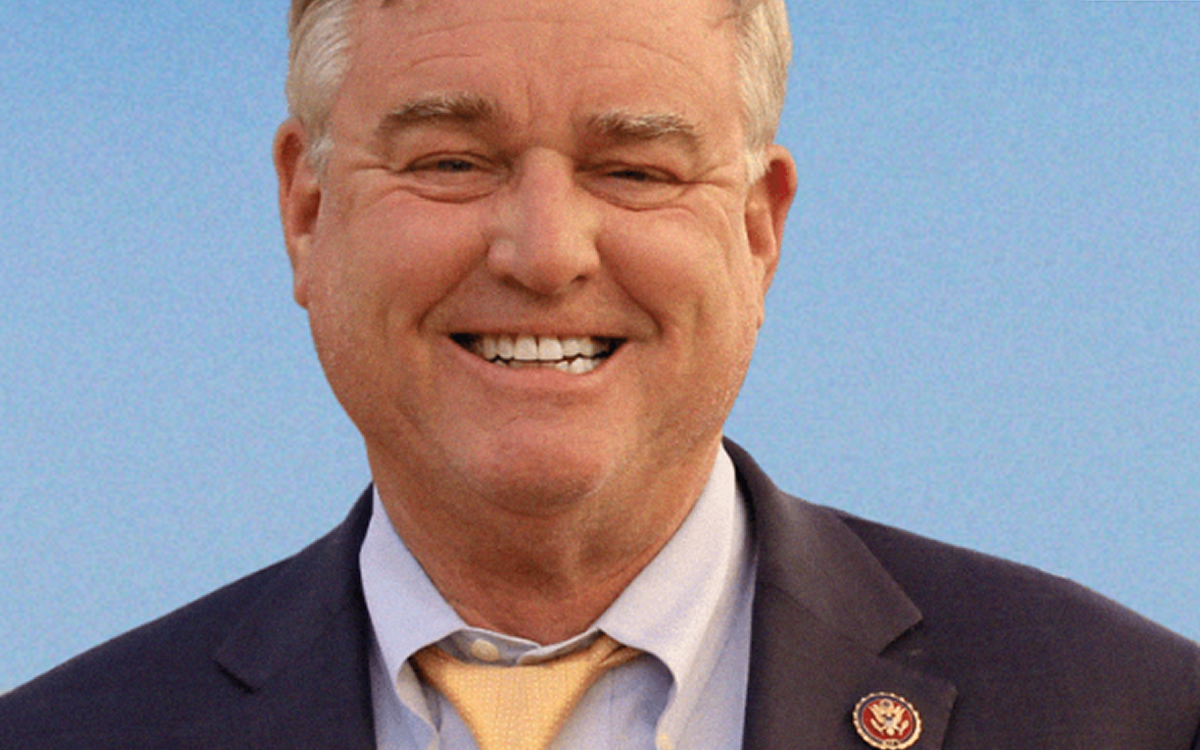
Editor’s note: The Washington Blade last week interviewed both U.S. Rep. David Trone (D-Md.) and Prince George’s County Executive Angela Alsobrooks. The full interviews with both Democratic candidates for retiring U.S. Sen. Ben Cardin (D-Md.)’s seat will be on the Blade’s website later this week.
Maryland Congressman David Trone last week discussed his transgender niece during an interview with the Washington Blade about his U.S. Senate campaign.
Trone, who is running to succeed retiring U.S. Sen. Ben Cardin (D-Md.), on May 1 told the Blade during a telephone interview that his niece transitioned when she was in her early 20s. Trone also noted she attended Furman University, a small, liberal arts university in Greenville, S.C.
“I was concerned about how she would be able to transition there,” said Trone.
Trone, who founded Total Wine & More, attended Furman University as an undergrad and is on the school’s board of trustees. Trone told the Blade he donated $10 million to the university to “build out their mental health capacity, which I felt was a way that she could have the best mental health care possible when she worked her way through (her) transition.”
Trone’s niece graduated from the university after she spent five years there.
“She had a great relationship with Furman,” said Trone.
Trone and Prince George’s County Executive Angela Alsobrooks are the leading Democrats running to succeed Cardin. The winner of the May 14 Democratic primary will face former Maryland Gov. Larry Hogan in November.




